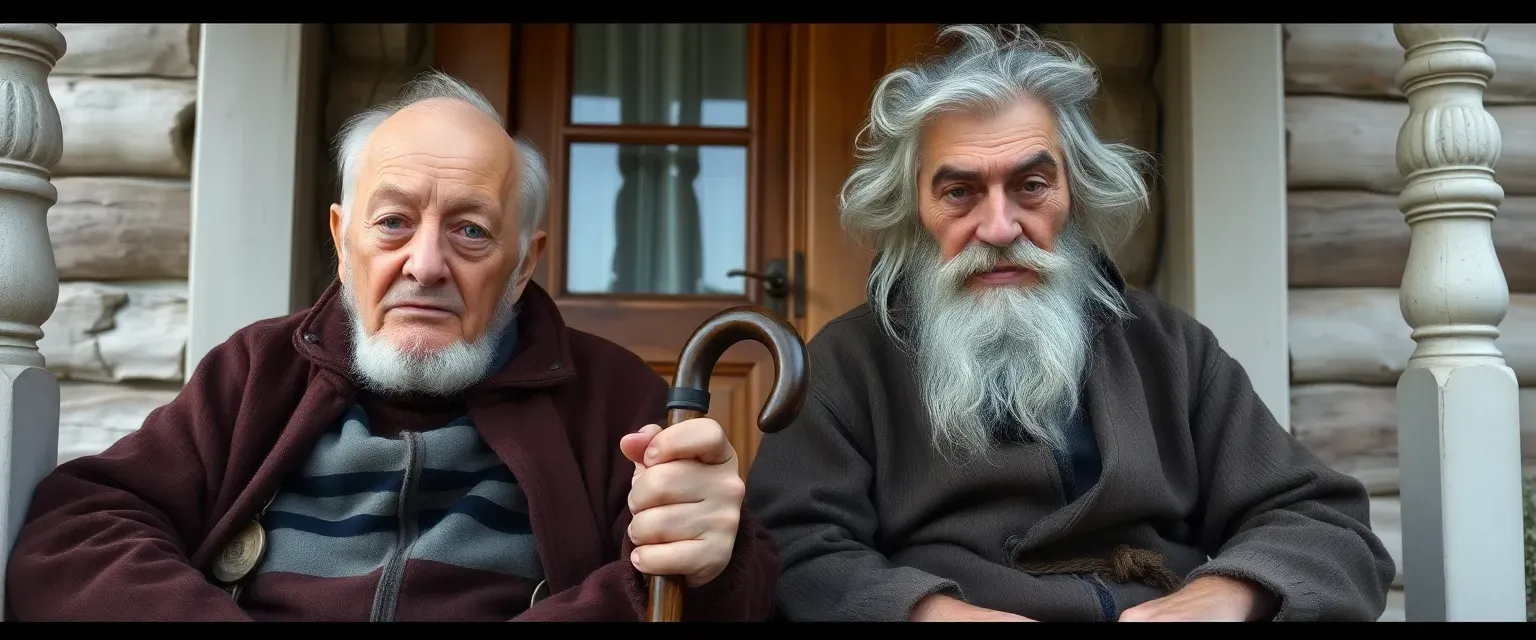In the heart of a pagan Slavic village, where ancient traditions weave through the daily life of its inhabitants, sit two inseparable old men on a weathered porch. Their names are Miro and Stipe, the old fellas, whose presence is as constant as the changing seasons. Miro, the blind one, has eyes that are milky white, a testament to years spent without sight. His face is etched with deep lines, telling stories of a life lived fully, yet his blindness has not dulled his sharp wit. He wears a faded, patched-up woolen coat, a relic from his younger days, and leans on a gnarled wooden cane that he taps rhythmically against the porch floor. Stipe, on the other hand, is hard of hearing, his ears slightly enlarged and protruding, a physical manifestation of his condition. His hair is a wild, unkempt mane of gray, and he dons a tattered vest over a once-white shirt, now yellowed with age. His hands are always busy, fiddling with a piece of wood or a string, a habit born from years of compensating for his hearing loss.
Together, they spend their days in a symphony of cynicism and grumpiness, commenting on the villagers and the rituals they so openly disdain. They reminisce about a time when life was simpler, the weather more agreeable, and the community more to their liking. Yet, despite their constant complaints and their apparent detachment from the world around them, they are deeply intertwined with the fabric of the village. Miro's keen sense of hearing and Stipe's sharp eyes allow them to gather information and gossip that they share with each other, a lifeline that keeps them connected to the world they can no longer fully engage with. Their patience in observation is a testament to their enduring spirit, a quiet rebellion against the inevitable march of time.
Miro's unique quirk is his habit of humming old Slavic tunes, a melody that seems to come from another world, a world he can no longer see but can still feel through the vibrations of his voice. Stipe, on the other hand, has a peculiar way of tilting his head to the side when he speaks, as if trying to catch the words that escape him. Their lives are a tapestry of conflicts, from the generational divide that separates them from the younger villagers to the internal struggle of accepting their own aging and limitations. Yet, in their shared grumpiness and cynicism, they find a strange comfort, a bond that has weathered the storms of time and will continue to do so until the end.
